Tame Kubernetes complexity
Humanitec enables fast and compliant Kubernetes adoption at scale, following enterprise best practices.
3x
Faster K8s rollout
95%
Less config files, e.g. Helm charts
400%
Average increase in deployment frequency





















Don't let Kubernetes kill your developer productivity

Build an easy to maintain IDP on top of K8s

Get rid of ticket ops













SEE it in action
An intuitive layer on top of Kubernetes








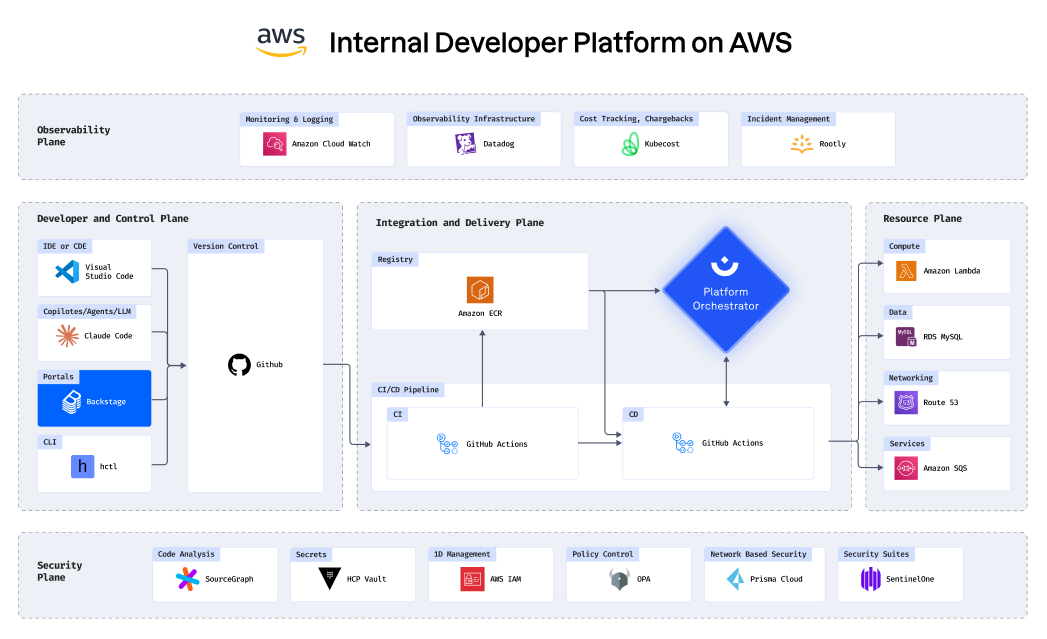
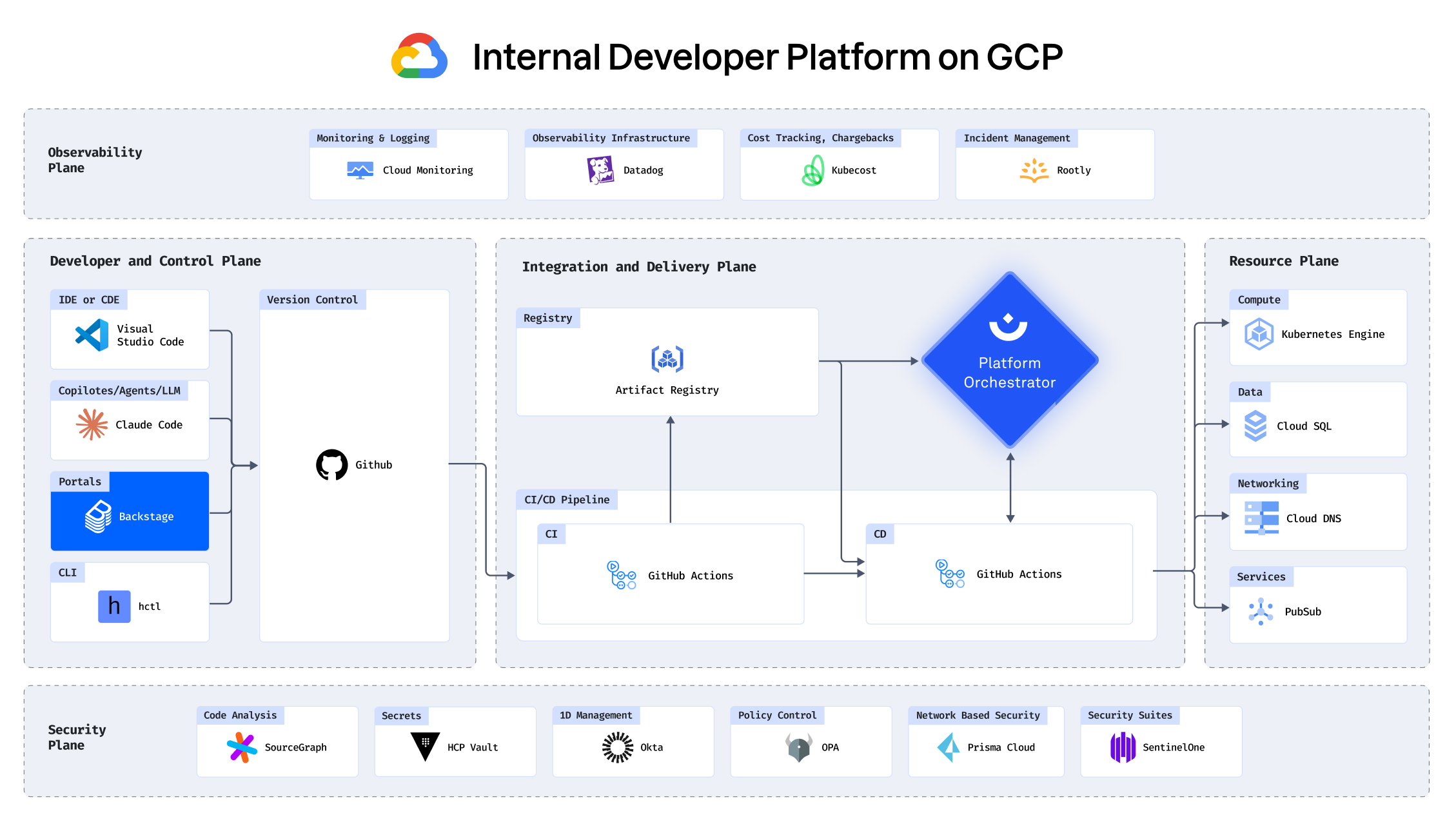
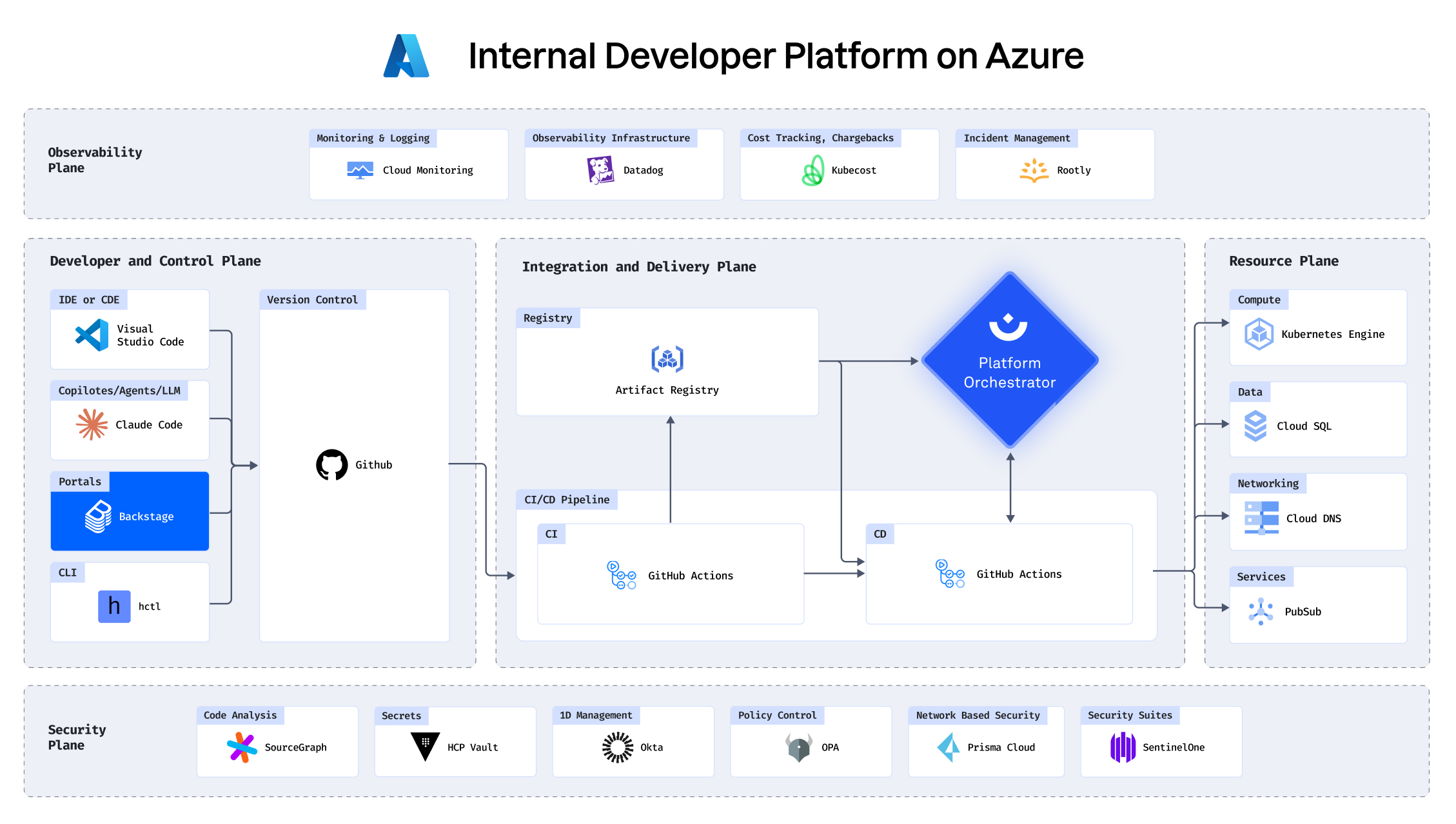
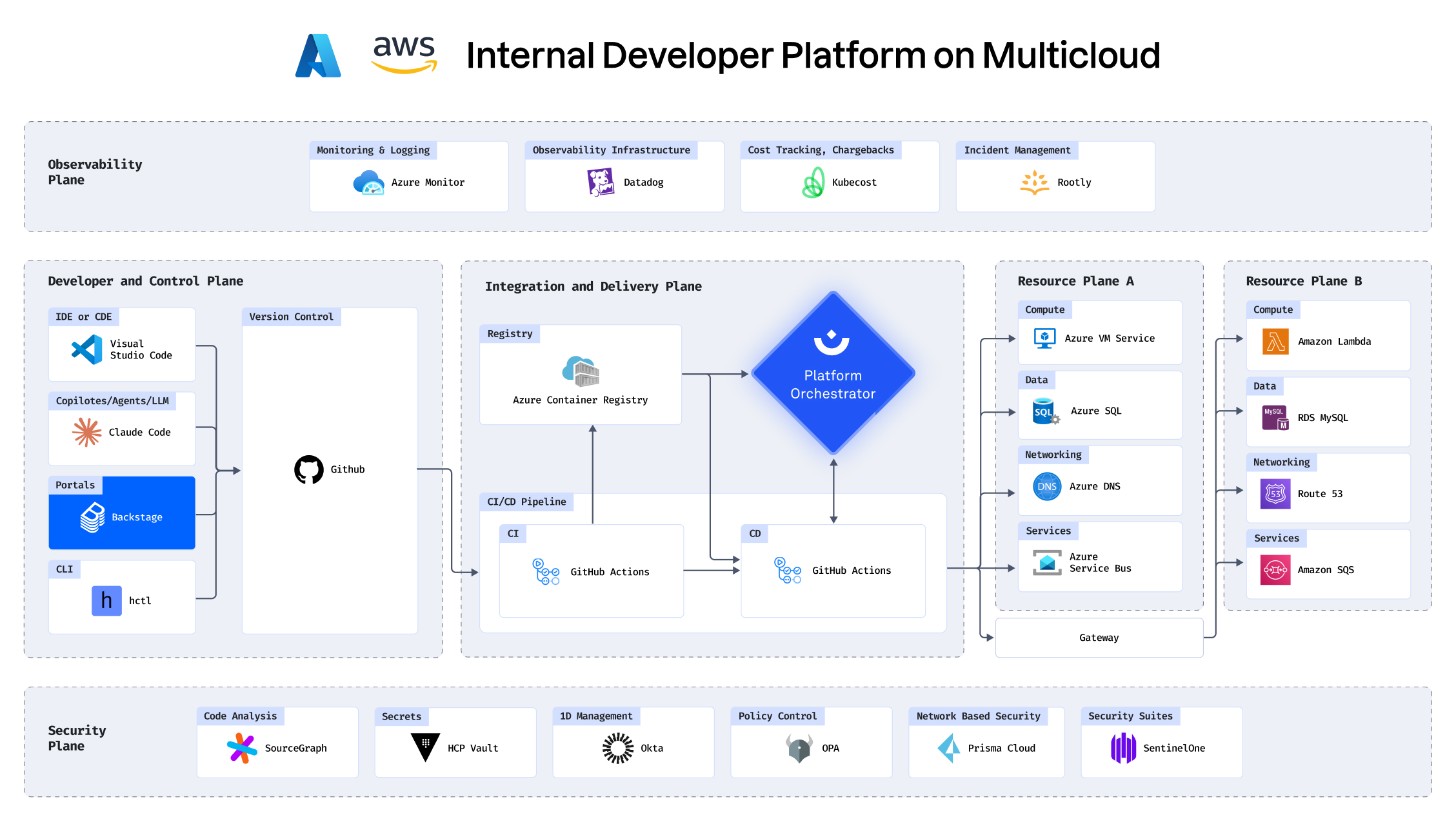
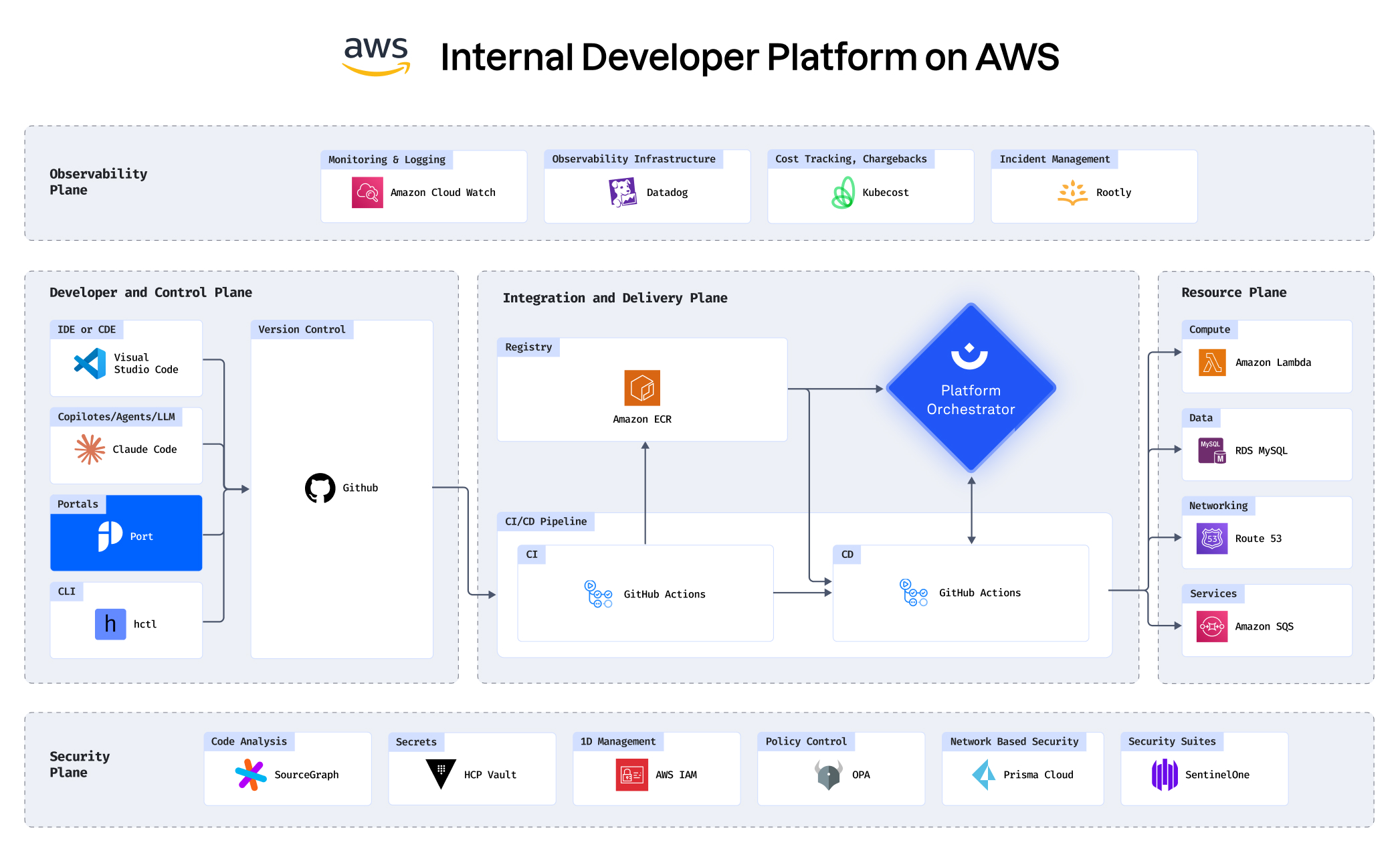
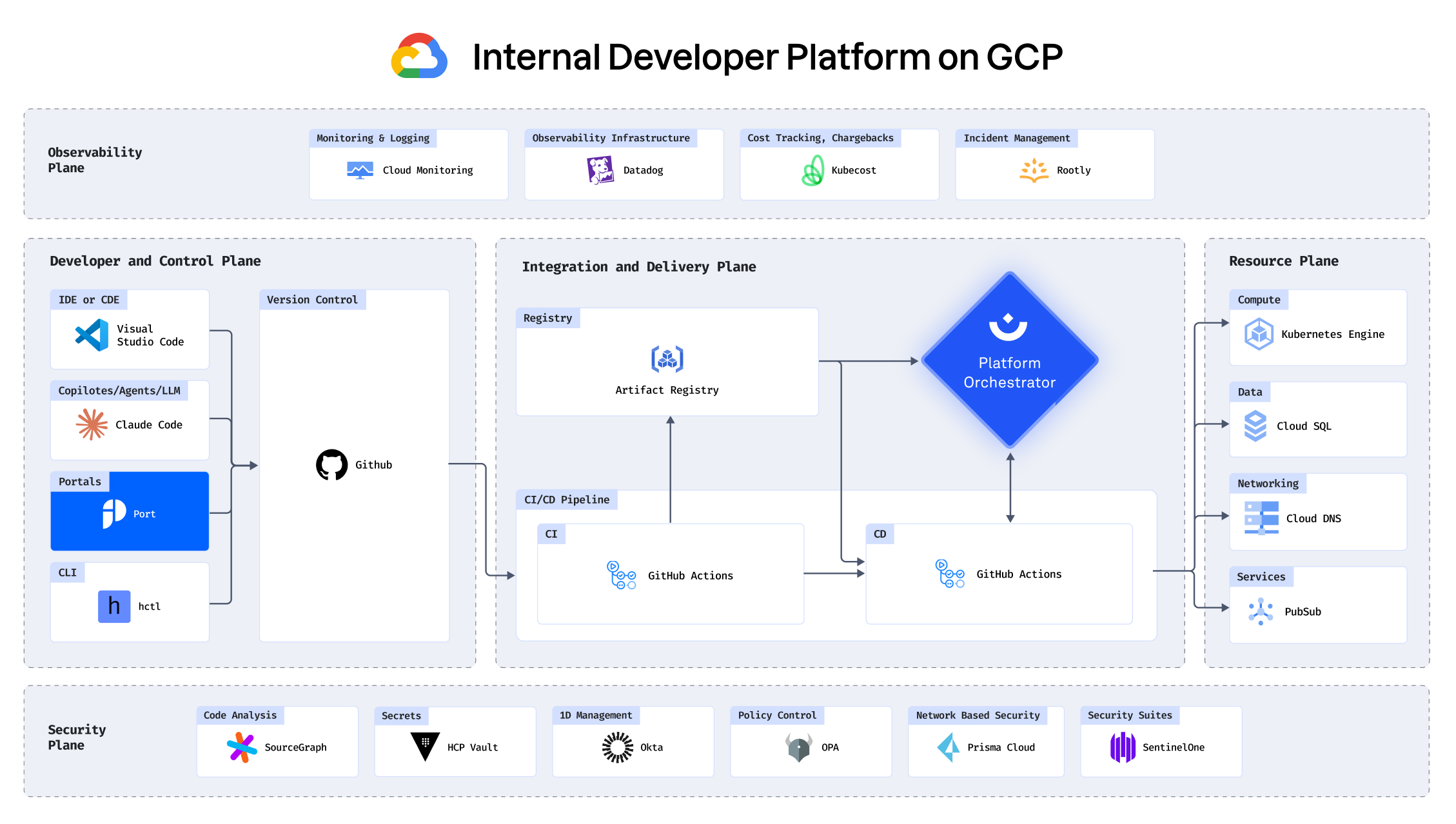
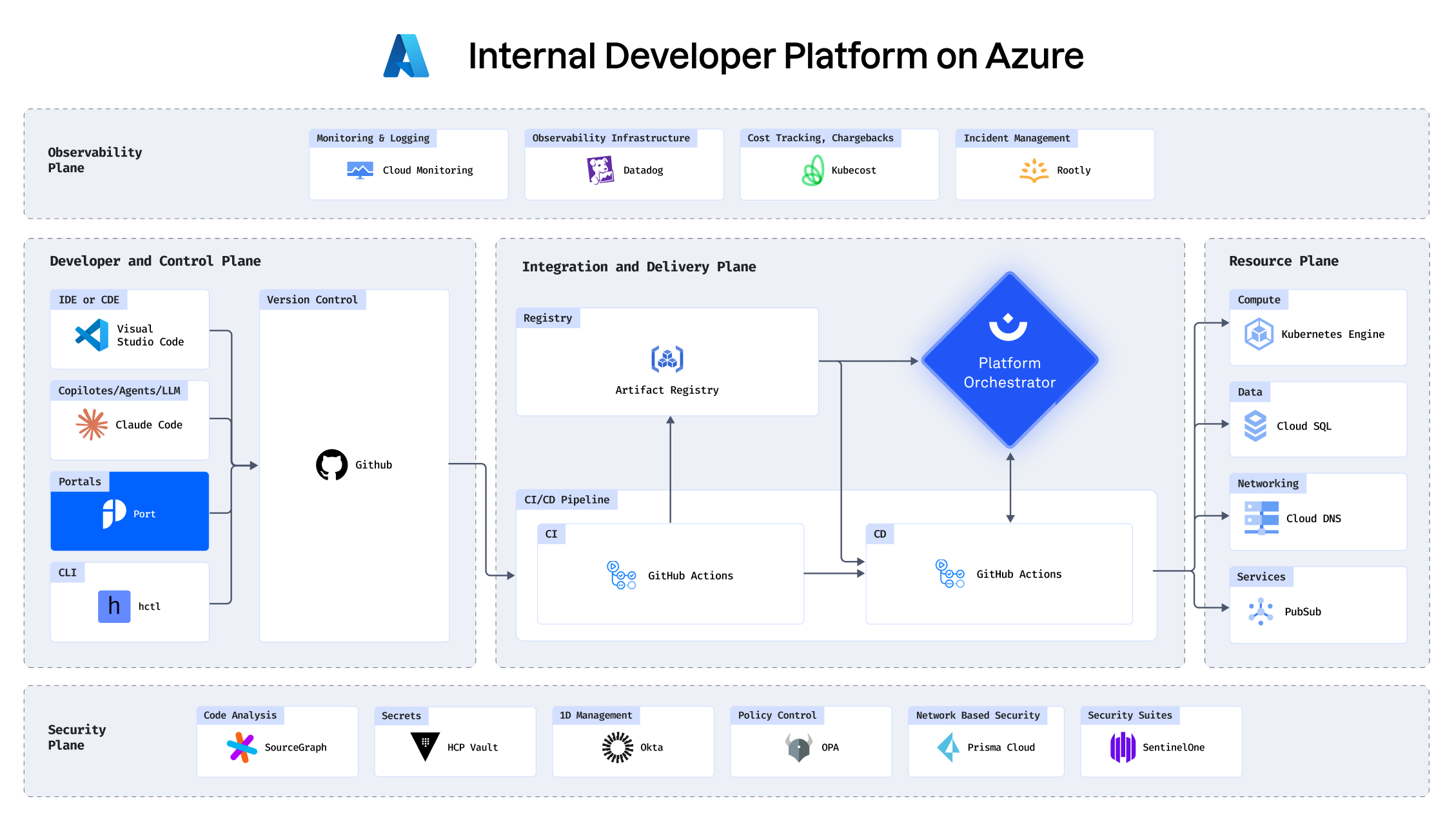

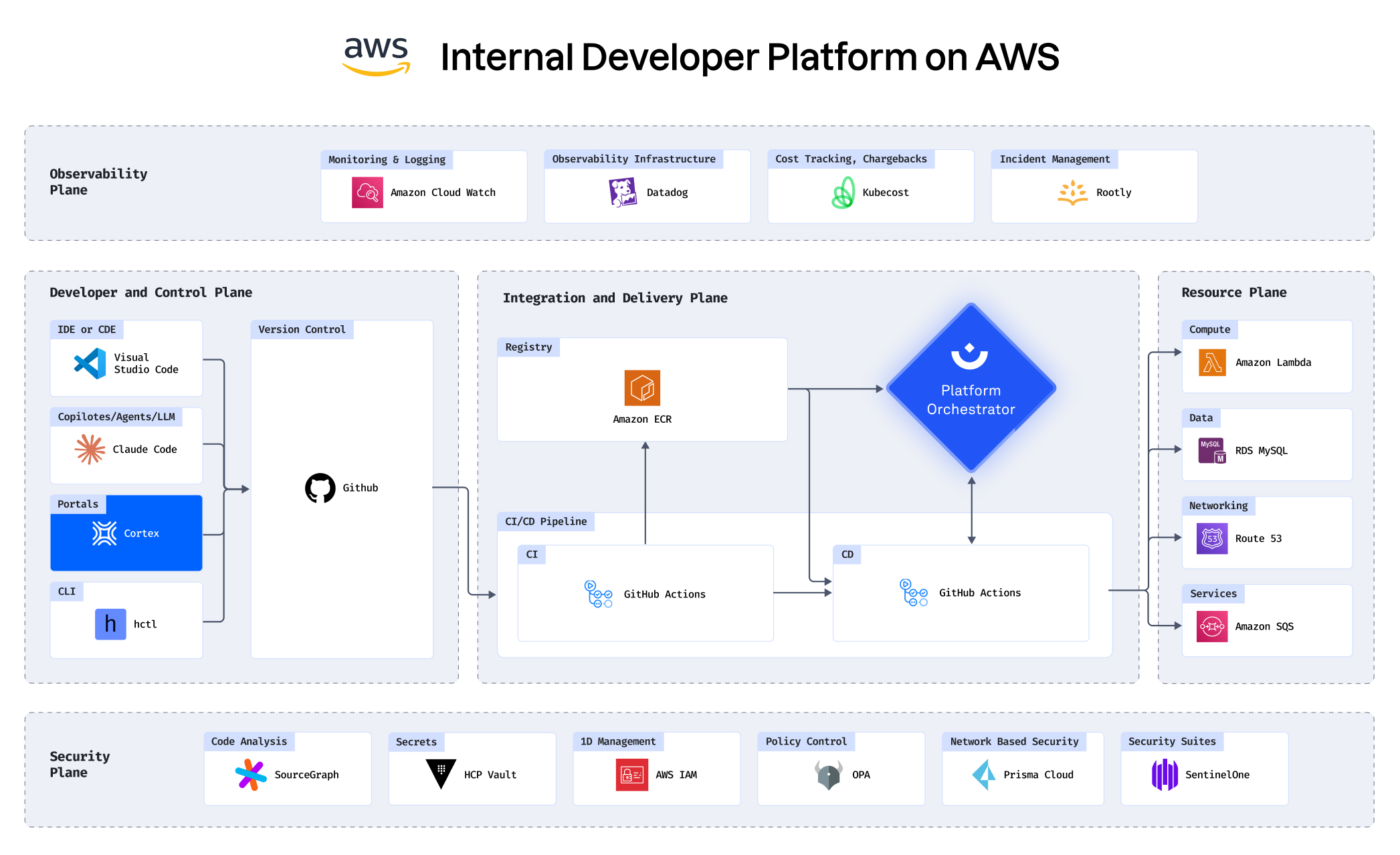
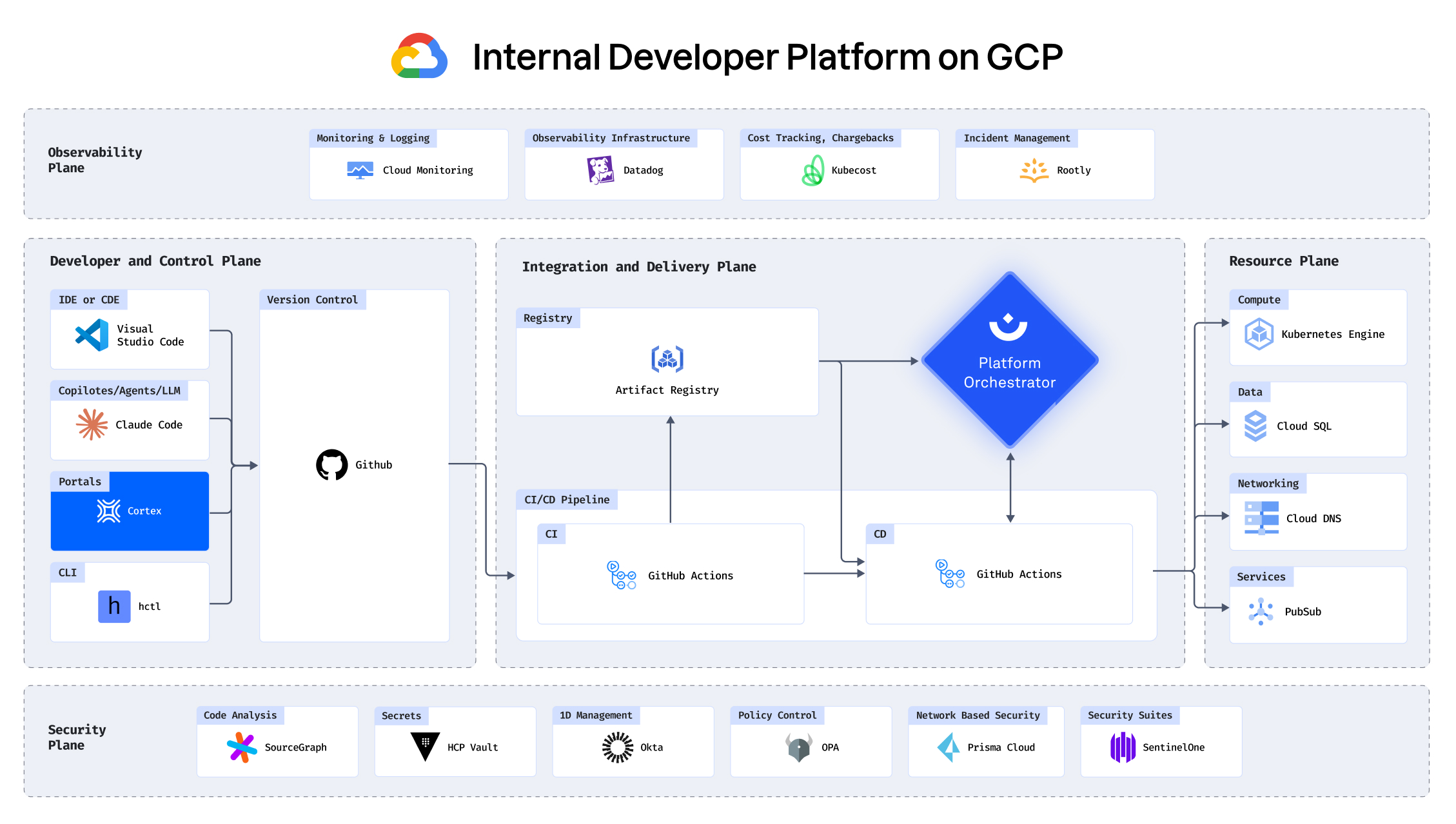
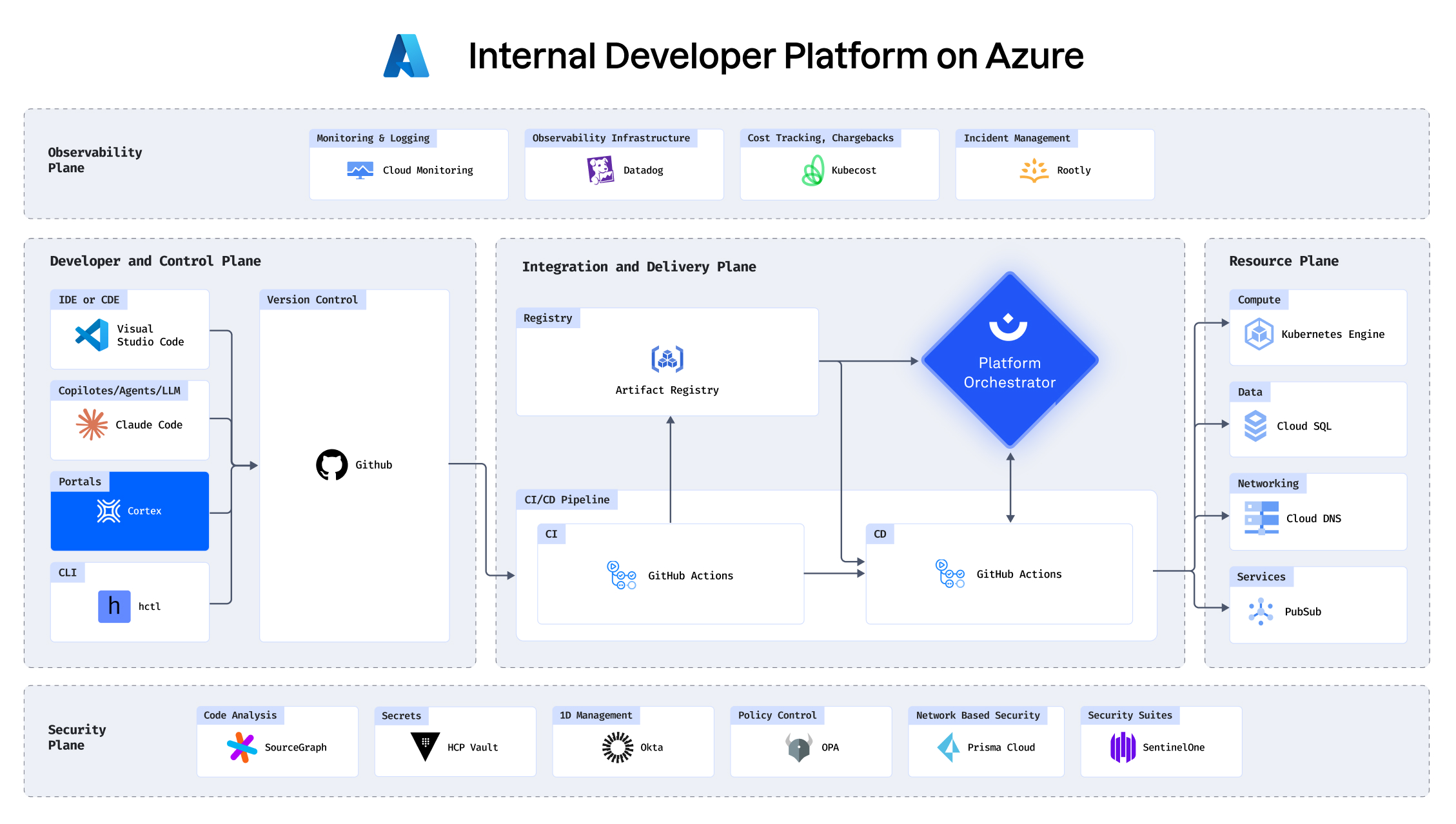

Know exactly what you’re rolling back
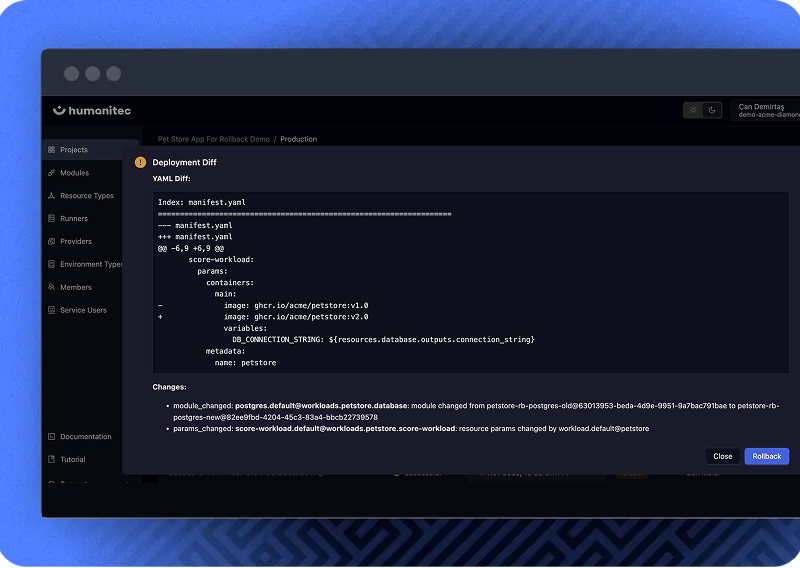

HOW IT WORKS
See drift. Understand it. Fix it.
Catch drift where you already monitor your systems
observability stack, so teams see issues
immediately.

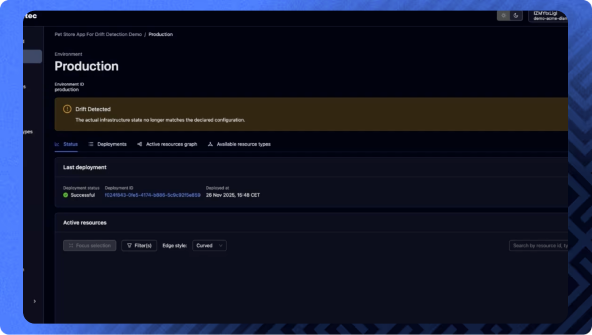
Know exactly what’s affected
environment are out of alignment
See precisely what changed
node and configuration causing the drift, so teams
can resolve the issue fast and confidently.
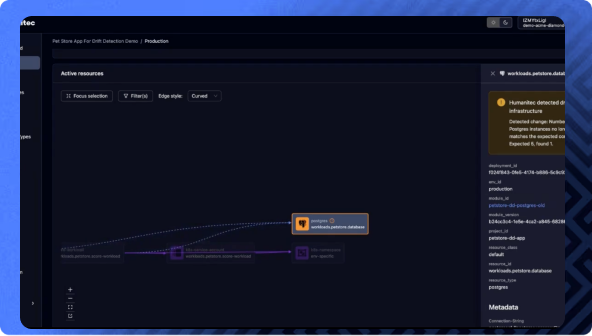

Today
vs
With Humanitec

Today
vs
With Humanitec

See how you can build an IDP in under 30 minutes
Building an IDP using GCP, Port, Humanitec, Datadog and
more
Building an IDP using AWS, Cortex, Humanitec, Datadog and
more
See how you can enable developer self service in 5 minutes:

See how Convera tamed K8s with Humanitec
On their journey to a state of the art cloud native setup, Convera’s team found themselves spending too much time getting into the weeds of Kubernetes.
Using the Internal Developer Platform built with Humanitec, developers no longer have to waste time figuring out K8s implementation details when promoting workloads from local to production.
Now they have the ability to choose their own level of abstraction and self-serve what they need to run their workloads on top of K8s, without waiting on Ops.

With Humanitec, our developers don't need to touch Kubernetes unless they want to. This eased a lot of pressure from the team, allowing them to focus on what they do best — creating amazing solutions for our customers

Dive deeper






